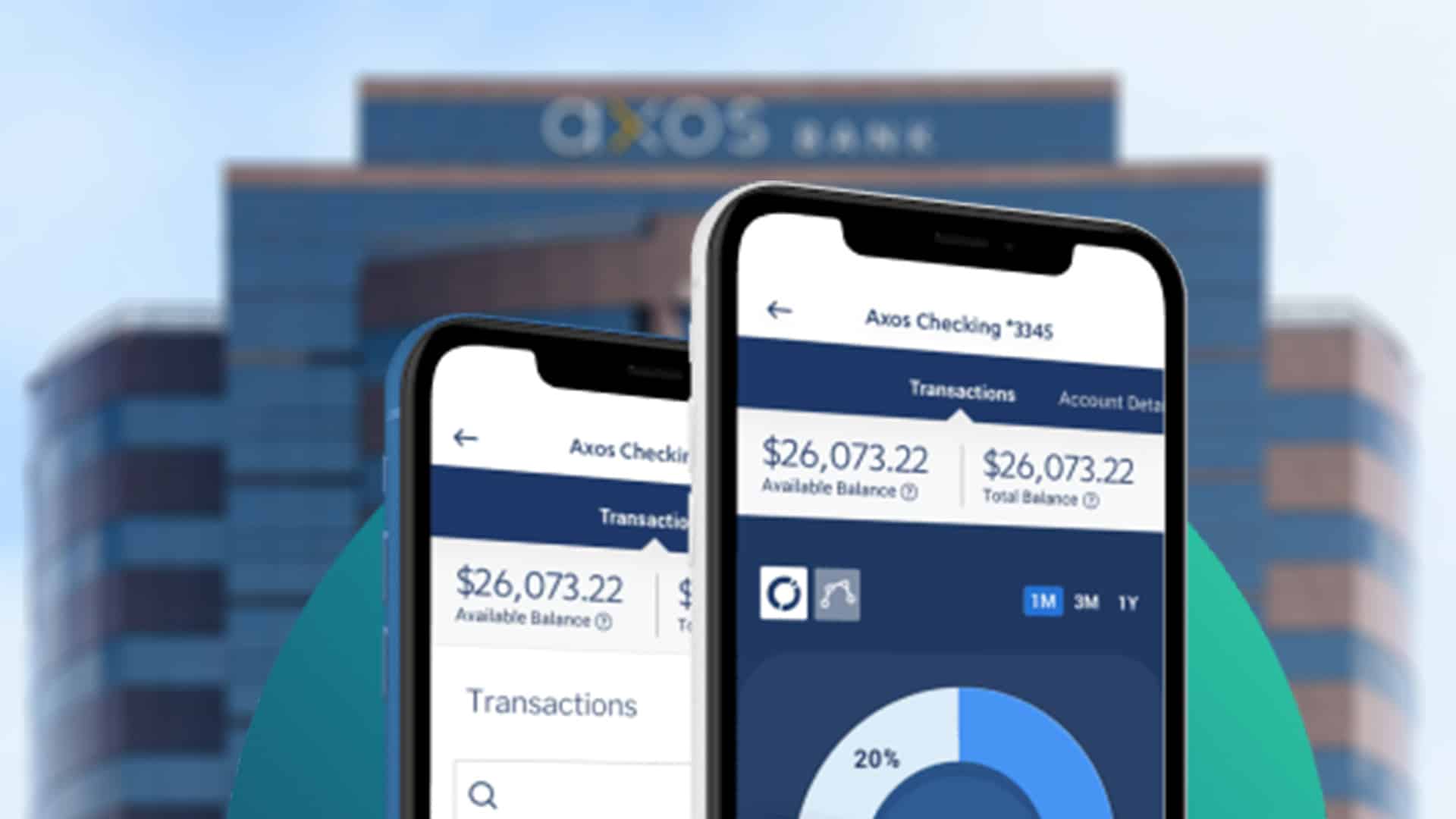Most products on this page are from partners who may compensate us. This may influence which products we write about and where and how they appear on the page. However, opinions expressed here are the author's alone, not those of any bank, credit card issuer, airline or hotel chain. Non-Monetized. The information related to Chase credit cards was collected by Slickdeals and has not been reviewed or provided by the issuer of these products. Product details may vary. Please see issuer website for current information. Slickdeals does not receive commission for these products/cards.
Committing to a relationship with someone is a big step, but marriage is an even bigger step that many people don’t want to — or can’t — take. Either way, sharing a life with someone means also sharing finances. How you share your life and your money is something you get to decide together, and joint bank accounts are one tool that can help you do that.
“Joint bank accounts signify a financial commitment and can make it easier to manage shared expenses such as rent, utilities, groceries, and vacations,” says Cait Howerton, Certified Financial Planner at Archer Investment Management. “[At the same time] opening a joint bank account as an unmarried couple carries certain risks and challenges.”
We’ll break it down so you can determine whether joint bank accounts—even for unmarried couples — are right for your relationship.
What Is a Joint Bank Account?
A joint bank account is any banking account with more than one owner, such as a checking or savings account. Married couples often combine finances using joint bank accounts, but you don’t necessarily need to be someone’s romantic partner to open one. For example, parents and children or business partners can also open a joint bank account.
Each co-owner has the same legal rights and account management responsibilities, including the money held within it. This makes it easy to manage your finances together, but sharing access and responsibilities is also a double-edged sword.
Things can quickly head south if you’re not completely committed and open in your communication. After all, you’re signing up to be legally liable for someone else’s banking and financial habits while also handing them the keys to any money you put in the account.
Should You Open a Joint Bank Account if You’re Not Married?
This isn’t an easy decision, and there are several things to keep in mind when deciding whether to open a joint bank account as an unmarried couple.
- Is there a financial disparity? Start by looking closely at each person’s financial situation. “If one partner has significant debts or a poor credit score, it could affect the other partner's financial well-being,” says Howerton.
- Do both parties have a similar approach to finances? Consider your financial management styles and how easily they mesh together. “Differing financial values and behaviors can lead to conflicts, so it's important to discuss and align [your] approaches to finances,” says Howerton. If one of you is hell-bent on retiring early and the other partner has a more YOLO attitude, for example, that’s setting the stage for future conflicts.
- Are there issues with communication? Finally, the most important factor doesn’t have anything to do with money: your commitment and communication style. “It's crucial to discuss expectations, boundaries, and the legal implications of a joint account, including how ownership and access to funds would be handled in the event of a breakup or other unforeseen circumstances,” says Howerton.
Those discussions aren’t easy, but it’s important to feel comfortable talking about finances with your partner. Transparency will help you manage your future paths around the potential pitfalls of opening a joint bank account with someone you're not married to, so you can enjoy the many benefits instead.
 Related Article
Related Article
Best High-Yield Savings Accounts (November 2025)
Pros and Cons of Joint Bank Accounts for Unmarried Couples
Opening a joint bank account is a big step for couples committed to building a future together. To make sure it’s a step in the right direction, you should consider the benefits and potential drawbacks:
Pros
- Easier estate planning: If one of you were to pass away, having a joint bank account ensures the remaining partner can access the account without interruptions.
- A dedicated place to save: Contributing to a shared savings account for a shared financial goal, like buying a house, can help ensure each partner is motivated to save and can see the progress being made.
- Helpful for managing shared expenses: It’s simpler to pay bills, put a down payment on a car, or plan out your long-term financial goals with one account rather than multiple independent accounts.
- Dodge account fees and earn more interest: Some banks charge monthly maintenance fees for lower balances, which you and your partner can avoid by pooling your money together. You could also earn more interest with a larger pooled balance.
Cons
- Lack of privacy: A separate individual bank account or credit card is the only way to maintain privacy for your purchases. Giving a less-than-responsible or financially controlling person access to your money can put you at risk for financial abuse and make it harder to leave a bad situation.
- Can create animosity: If one partner feels like they’re contributing more to the joint account than the other unfairly, it can set the stage for resentment and nasty arguments that affect the health of your relationship.
- Fewer legal protections if you split up: Either partner can drain the joint bank account at any time — something that can happen if you split up.
- Partner’s creditors can take your money: If your partner has bad debts or gets sued, a creditor can target the funds in a jointly-owned account to resolve outstanding debts in certain cases — even if you weren’t responsible for the financial problem.
- Can impact eligibility for government benefits: The balance of your bank accounts helps determine whether you can receive financial aid for college, Medicaid, or Supplemental Security Income. Pooled finances can put you above a particular program’s asset limits and render you ineligible for aid.
- Joint liability for account mismanagement: If your partner writes a lot of bad checks, overdrafts the account frequently, or just lacks general money management, you’ll be liable for any fees or other wrist slaps.
Tips for Managing a Joint Bank Account if You’re Not Married
We’re not born knowing how to manage money, let alone manage money with someone else. Here are a few tips that can help you maintain a jointly-owed bank account:
- Create a budget: Think of your account as a “spending plan” that can help you and your partner get on the same page about where to spend and save money. This sets clear expectations upfront rather than relying on gut feelings and day-to-day buying decisions.
- Create a cohabitation agreement: Like a pre-nuptial agreement, written documents can define how you’ll share your finances, who owns what, and what you want to happen if you end things. A lawyer or other free legal assistance programs can draw up these documents.
- Develop good communication habits: You should feel comfortable talking to your partner about difficult topics, like if they’re spending more money than you both agreed or you experience a change in income, for example.
- Look up your state’s common law partnership requirements: A few states offer unmarried couples the same protections as married people if you meet certain requirements. This can give you a lot of protection if your relationship ends.
Alternatives to Joint Bank Accounts
Having a joint bank account may not be the right solution for every couple. Here are a few alternatives to consider:
- Money apps: “Joint bank accounts are not the only way to manage shared expenses. Couples can use payment-splitting apps like Splitwise or Venmo,” says Howerton. These alternatives can be a bit more work to manage, but they are perfectly good alternatives to joint bank accounts because they allow you to maintain financial independence.
- Separate accounts with a shared account for bills: Many couples opt for a hybrid approach: opening a joint bank account to pay for shared bills and savings goals and maintaining separate individual accounts for everything else. With this method, you can set up automatic transfers into the joint account with each paycheck you’ll use to pay shared bills.
Again, managing multiple accounts requires more work, but it allows everyone to pay for exactly what they’re using.
Frequently Asked Questions
-
Yes, if you’re eligible to open an individual bank account, you can also open a joint account with someone else you’re not married to.
-
All owners of the joint bank account will need to pay taxes on the interest earned. For unmarried couples, they'll need to decide whether one person will take the full liabilty of taxes owed, or if they want to split the tax liability. Consult a tax professional for advice.
-
Everyone listed as an owner on a joint account owns the money inside of it. Any money you put into the account belongs to you and anyone else listed on the joint account, and vice versa.
-
Breaking up generally does not impact who legally owns the money in a jointly-owned account. Both parties can still continue to deposit funds and withdraw money. However, most couples tend to close a joint account and split up the funds after a breakup.


















